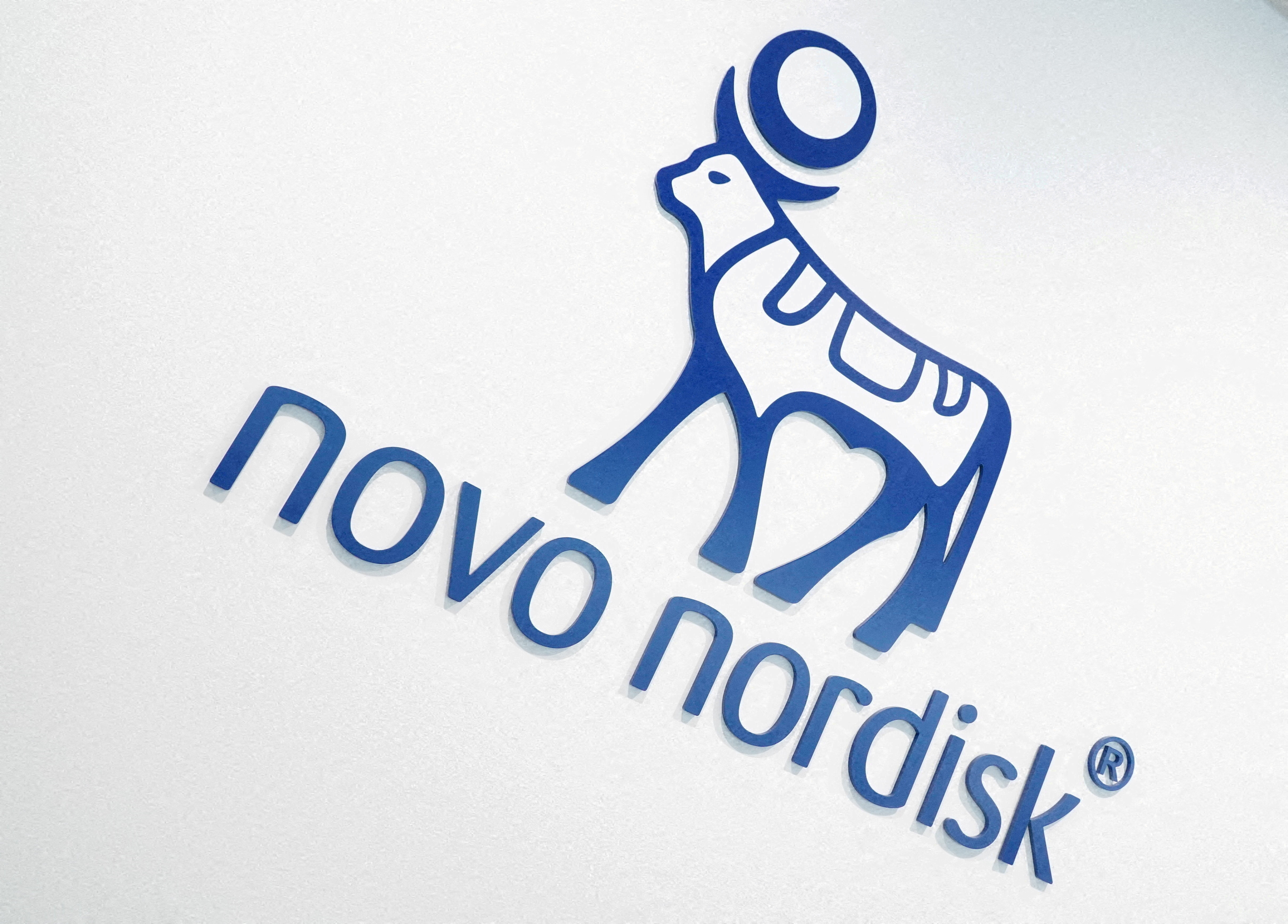[ad_1]

The logo of Danish drugmaker Novo Nordisk, Copenhagen, Denmark, September 26, 2023. REUTERS/Tom Little/File Photo Acquire Licensing Rights
LONDON/COPENHAGEN, Nov 10 (Reuters) – Obesity drug maker Novo Nordisk (NOVOb.CO) said on Friday it will spend $6 billion to boost production in Denmark, although its chief executive warned the industry was far from being able to produce enough weight-loss drugs to meet global demand.
Novo Nordisk has had phenomenal success with its anti-obesity drug, Wegovy, but has scrambled to address shortages that have forced it to limit the number of patients.
The World Health Organization describes obesity as a “rising epidemic” and estimates that more than 1 billion adults globally will be living with obesity in 2030.
“With the capacity we’re building and what competition is building, I believe we are far from getting to a billion people,” CEO Lars Fruergaard Jorgensen told Reuters in an interview.
“I believe we will continuously have to invest,” he added.
This week, U.S. and British regulators approved Eli Lilly’s (LLY.N) weight-loss treatment, while AstraZeneca (AZN.L) invested in licensing an experimental pill from China’s Eccogene.
Enormous demand is expected to drive annual sales of obesity drugs to $100 billion within a decade, with as many as 10 different drugs on the market, according to analysts.
Jorgensen said he welcomed competition and that the approval of Eli Lilly’s drug “will further fuel market growth.”
Novo said more than 42 billion Danish crowns ($6.0 billion) it will spend on expanding its Kalundborg site in Denmark will boost capacity for manufacturing active pharmaceutical ingredients (API) as well as across other parts of its supply chain, such as packaging.
This will include lifting capacity for GLP-1 products such as semaglutide, the API in Wegovy as well as the company’s Ozempic diabetes treatment.
A portion of the investment was included in a 25 billion crowns capital expenditure plan announced in February. That is up from 12 billion in 2022 and 6.3 billion the year before.
A healthcare banker told Reuters on Friday after Novo’s announcement that increasing API production and fill-finish capacity could take at least three years.
“That’s the constraint Novo has,” the banker said. The challenge of swiftly ramping up production means that “the market is potentially overestimating their ability to deliver the numbers” the company is forecasting, the banker said.
Jorgensen said that although Friday’s announcement focused on API production, Novo Nordisk will spend more on expanding capacity to fill the injection pens used for Wegovy and Ozempic, a process known as fill-finish.
For the medium term, Novo will invest to increase fill-finish capacity at its own sites around the world and “we also have plans to gradually expand what we do with contract manufacturers”, he said.
Novo’s investment is the largest in Denmark by a private sector company, a company spokesperson said.
The construction projects are due to be completed from late 2025 through 2029.
Shares in Novo Nordisk, Europe’s most valuable company by market capitalisation, were trading 0.6% higher at 1026 GMT, outperforming a 0.9% drop in the wider European stock market (.STOXX).
($1 = 6.9857 Danish crowns)
Reporting by Jacob Gronholt-Pedersen in Copenhagen and Terje Solsvik in Oslo; Editing by Essi Lehto, Anna Ringstrom, Edwina Gibbs and Tomasz Janowski
Our Standards: The Thomson Reuters Trust Principles.
[ad_2]
Source link
